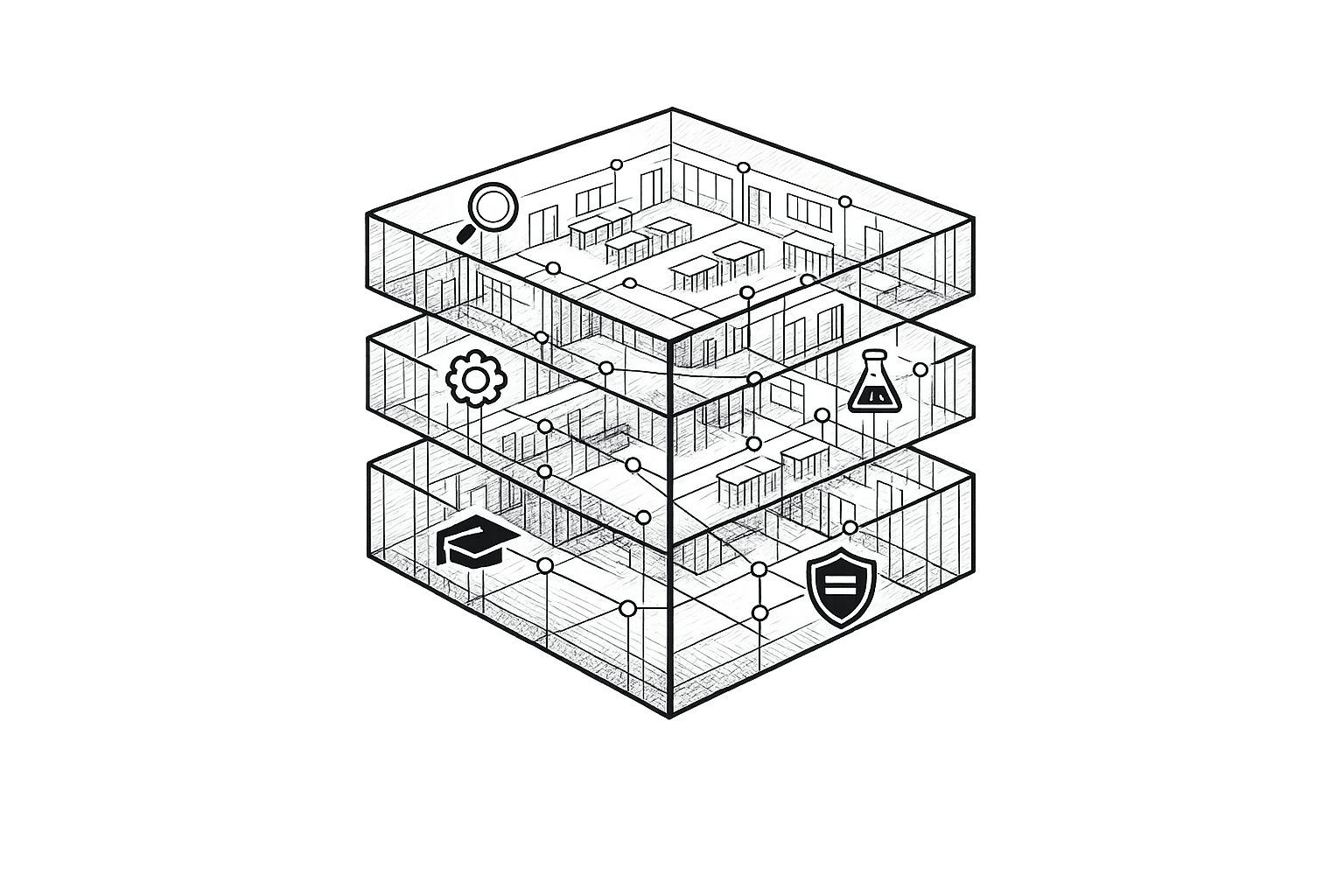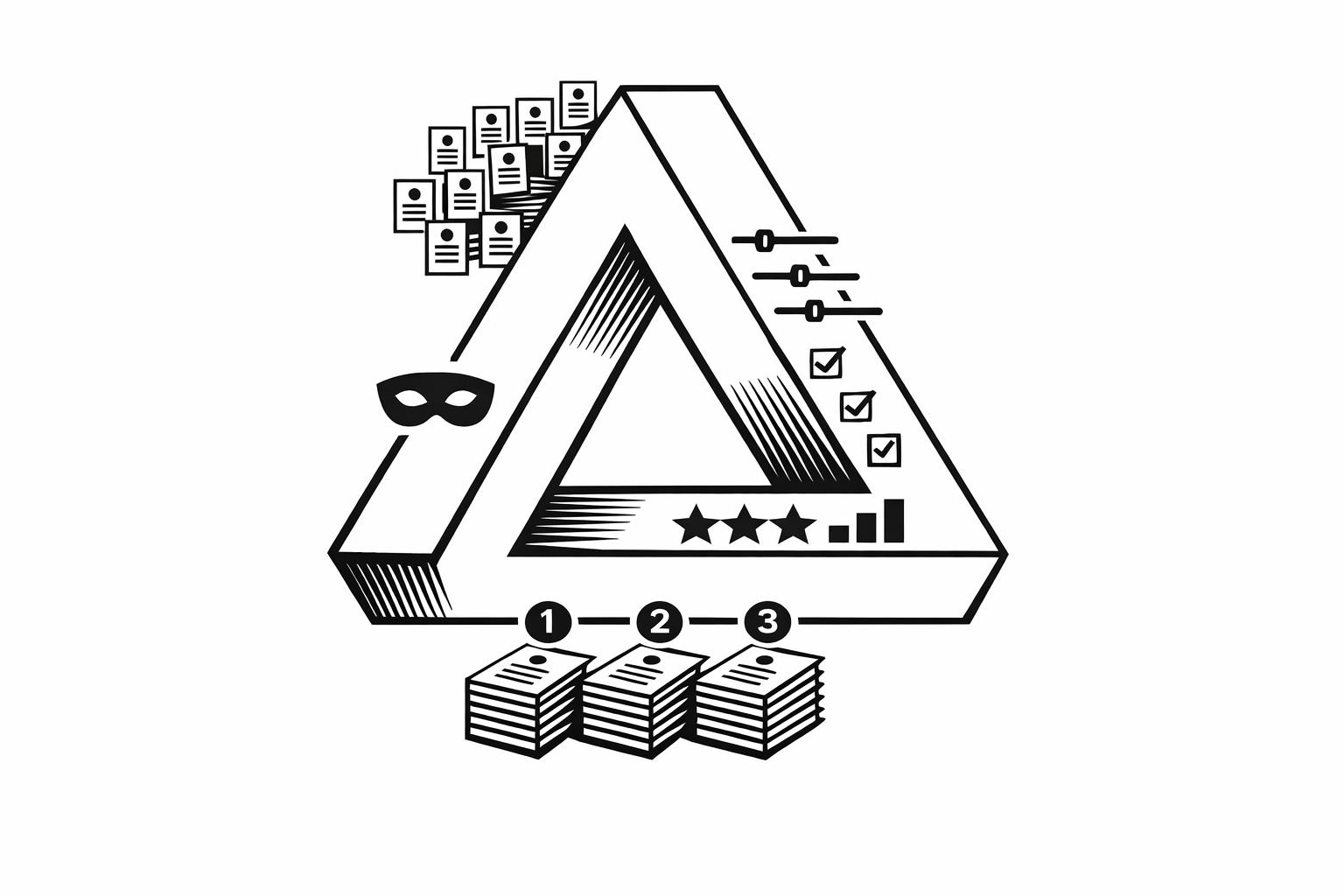AIPRM or God of Prompt? The Truth About Browser Extensions

Choosing the right prompt tool for your workflow can save time and simplify how you use AI tools. If you rely heavily on ChatGPT and prefer browser-based integration, AIPRM might be the right fit. But if you need flexibility across multiple AI platforms or offline access, God of Prompt offers a broader solution. Here’s a quick breakdown:
- AIPRM: A browser extension designed for ChatGPT users. It provides a community-driven prompt library, customizable templates, and integration directly into your browser. However, it requires constant internet access, works only on supported browsers, and may face restrictions in corporate IT environments.
- God of Prompt: A standalone library of 30,000+ prompts available via Notion. It works across multiple AI platforms (ChatGPT, Claude, Midjourney, etc.), supports offline access, and avoids installation hurdles. Pricing is one-time, ranging from $37 to $150, with lifetime updates.
Quick Comparison:
| Feature | AIPRM | God of Prompt |
|---|---|---|
| Access Method | Browser extension | Notion-based library |
| Platform Compatibility | ChatGPT only | Multiple AI tools |
| Offline Access | No | Yes |
| Prompt Library Size | Variable | 30,000+ prompts |
| Pricing | Free trial available | $37-$150 one-time |
| IT Restrictions | Possible | None |
Which one should you pick?
If you want a simple browser-based tool for ChatGPT, AIPRM is a good choice. But if you need more flexibility, offline use, or compatibility with other AI tools, God of Prompt is a better fit for your needs.
Turbocharge Your ChatGPT: Keywords, Articles, Books, Scripts, Image Prompt Generations, and More
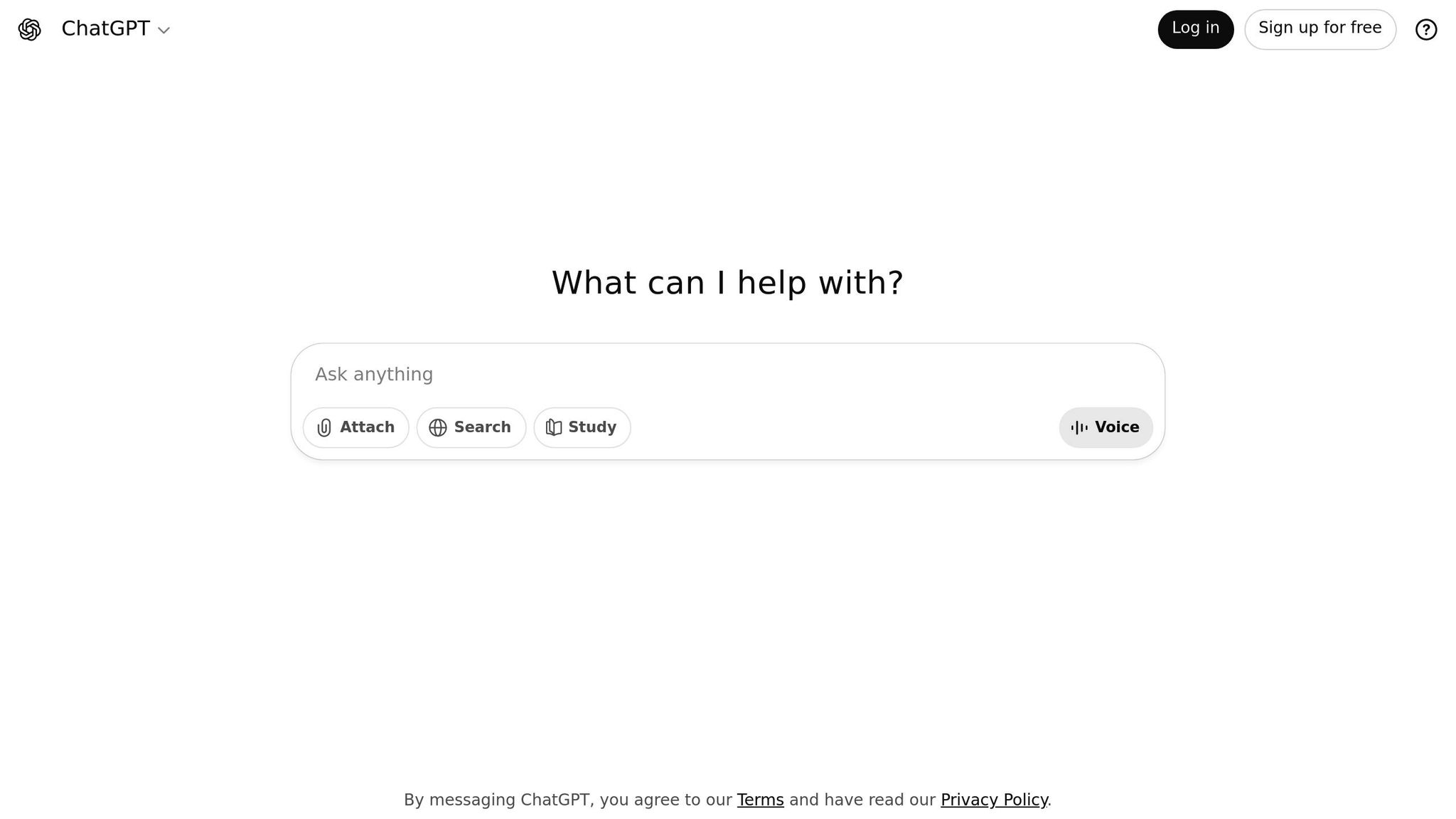
AIPRM: Browser Extension Features and Limitations
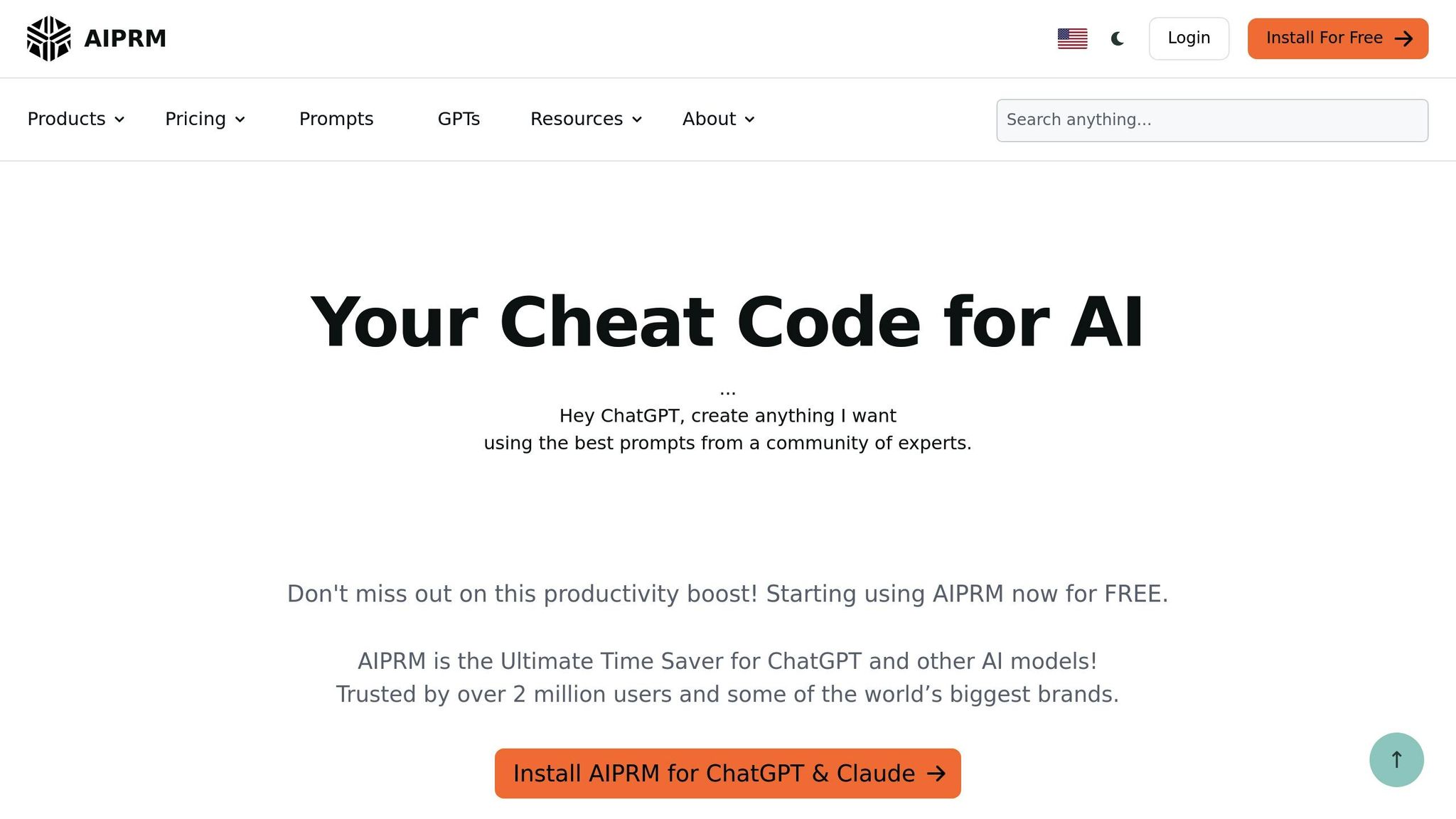
AIPRM brings prompt management directly into ChatGPT's web interface, offering a streamlined experience for users who primarily work within their browser. However, its browser-dependent nature introduces certain limitations that can impact accessibility and workflow flexibility.
AIPRM Core Features
One of AIPRM's standout features is its community-driven prompt library, which provides a wide range of marketing, SEO, content creation, and business-related prompts. These are easily accessible through dropdown menus and search tools integrated directly into ChatGPT.
The extension also offers customization tools that allow users to tweak existing prompts or create entirely new templates with variable placeholders. This is particularly useful for teams that need consistent messaging across multiple projects or clients. Other helpful features include the ability to favorite prompts, organize them into categories, and maintain personal libraries that sync across devices.
What sets AIPRM apart is its deep integration with ChatGPT. Prompts can be applied with a single click, and the extension retains conversation context, enabling more complex, multi-step workflows. Additionally, it tracks prompt usage statistics, giving users insights into which templates are most effective over time.
Browser Requirements and Access
AIPRM is compatible with Chrome, Firefox, and Edge (specific versions), but it requires a constant internet connection. This can be a challenge in environments with restricted or unreliable connectivity.
Installing the extension involves downloading it from official browser stores, which some corporate IT departments restrict due to security policies. After installation, users must create accounts and grant permissions to interact with ChatGPT, adding an extra layer of complexity compared to standalone solutions.
While cross-device synchronization works well within supported browsers, the extension does not extend to mobile devices or alternative platforms. This limitation can be inconvenient for professionals who rely on multiple devices throughout their workday.
User Experience and Feedback
Feedback on AIPRM varies depending on individual workflows and technical constraints. Professionals in marketing and content creation often appreciate the convenience of quickly deploying prompts, especially for repetitive tasks that benefit from reusable templates.
However, corporate users face hurdles such as IT approval processes, browser restrictions, and security reviews, which can delay implementation. Additionally, users handling sensitive data sometimes express concerns about the extension's need for broad browser permissions and constant internet access.
The learning curve also varies. While selecting basic prompts is straightforward, more advanced features - like creating custom prompts or managing variables - require a higher level of technical understanding. Some users find it challenging to organize large personal libraries, making it harder to locate specific templates as their collections grow.
Performance issues can further impact the user experience. For those with slower internet connections or older hardware, the extension may slow down browser performance, particularly when loading extensive prompt libraries. Occasional syncing problems between devices can also disrupt workflows for mobile professionals.
These observations highlight the challenges of a browser-based solution and pave the way for exploring the benefits of standalone library approaches.
God of Prompt: Standalone Library Features and Benefits
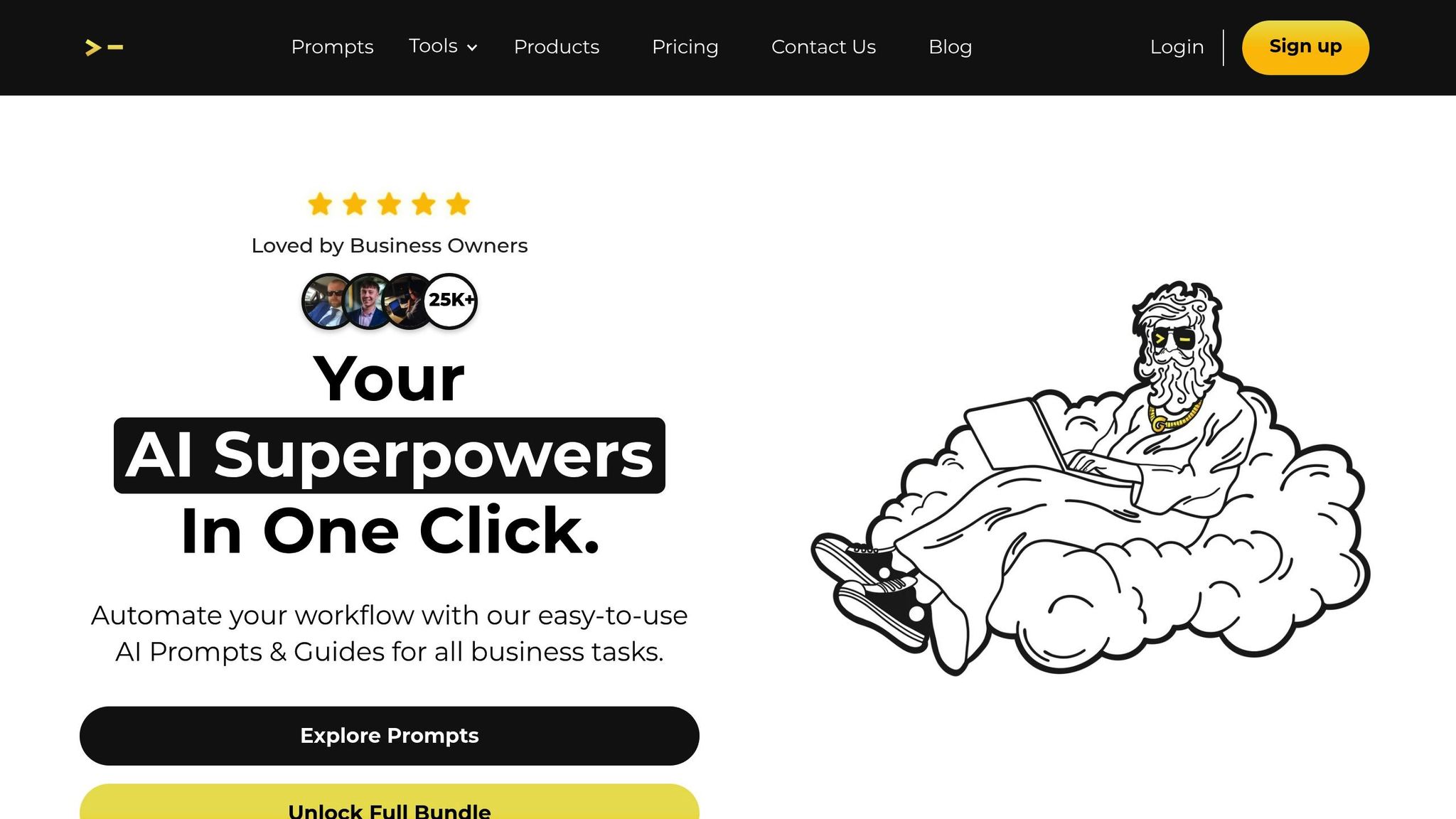
God of Prompt offers a standalone prompt library that operates independently of any platform, giving users flexibility while eliminating the technical hurdles often found in corporate environments.
Its platform-agnostic design allows you to access prompt collections from any device or operating system. This means you’re not tied down by browser restrictions, IT policies, or connectivity issues. This accessibility is particularly useful for professionals juggling multiple devices or working in areas with inconsistent network conditions. With this design, it’s easier to implement advanced prompt solutions for even the most intricate business tasks.
Curated Mega-Prompts for Business
At the heart of God of Prompt's library are mega-prompts - structured prompts designed to tackle complex business workflows. These go beyond basic templates by including detailed instructions, placeholders for variables, and step-by-step guidance for tasks like market analysis, crafting content strategies, and improving SEO.
"Automate your workflow with our easy-to-use AI Prompts & Guides for all business tasks." - God of Prompt
The library includes over 30,000 carefully curated prompts, organized into categories like marketing, finance, e-commerce, education, sales, and productivity. For example, a marketing mega-prompt might offer variations for B2B and B2C needs, cover different industries, and adapt to various campaign goals.
Specialized collections are also available, such as the Writing Pack ($37) with 200+ prompts tailored for content creation, and the ChatGPT Bundle ($97), which includes 2,000+ prompts optimized for business use. These targeted options let you purchase only what you need, avoiding the cost of an overly broad library.
Cross-Platform Access and Offline Use
One of the standout features of God of Prompt is its compatibility with major AI platforms. The same library works seamlessly with tools like ChatGPT, Claude, Midjourney, Grok, and Gemini. This means you can use your preferred AI tool for specific tasks without worrying about maintaining separate prompt sets.
"God of Prompt, the ultimate tool for generating creative and engaging prompts for ChatGPT, Claude, Midjourney & Gemini. With God of Prompt, you can choose your preferred AI tool and craft unique prompts that will inspire your creativity and drive engaging conversations." - Jarvis.cx
Prompts are delivered through Notion, offering a familiar and searchable interface that works offline once downloaded. You can organize prompts into custom databases, add notes, and even create team workspaces. Lifetime access ensures your prompts are available across devices, even in situations with limited connectivity, such as during travel or network outages.
For those on the go, the offline feature is especially handy. Whether you’re in airplane mode or working in an area with poor connectivity, you can copy and use prompts directly in any AI tool without delays. Plus, the instant delivery model means no complicated setup - just access your prompts in Notion right after purchase, with no need for installations or permissions.
How-to Guides and Learning Resources
God of Prompt doesn’t just provide prompts - it also equips users with learning tools to maximize their usability.
"We believe in making AI accessible and easy-to-use through our expertly curated products." - Alex, Founder of God of Prompt
The how-to guides delve into topics like prompt chaining, optimizing variables, and automating workflows. These resources are tailored to real-world business scenarios. For instance, they might show you how to establish a consistent brand voice across AI-generated content or how to adapt prompts to leverage the strengths of different AI models.
Advanced users can even create custom mega-prompts using proven frameworks, making them ideal for unique workflows. The focus here is on practical application - measuring prompt performance, refining based on results, and building scalable libraries. Regular updates ensure you stay ahead as new AI models and platforms emerge, keeping your workflows efficient and effective.
sbb-itb-58f115e
Side-by-Side Comparison: AIPRM vs God of Prompt
When deciding between AIPRM and God of Prompt, it's essential to weigh their features against your needs. AIPRM offers a browser extension for seamless integration with ChatGPT, but it’s limited to specific browsers and can sometimes clash with corporate IT policies. On the other hand, God of Prompt takes a web-based approach, bypassing these technical hurdles but requiring users to switch platforms for copying and pasting prompts.
Accessibility is a major point of distinction. AIPRM functions only within compatible browsers, while God of Prompt leverages a Notion-based delivery system, enabling offline access once downloaded. This makes it particularly useful for professionals who often deal with unreliable internet connections. The table below outlines these key differences.
Feature Comparison Table: AIPRM vs God of Prompt
| Feature | AIPRM | God of Prompt |
|---|---|---|
| Access Method | Browser extension | Standalone web library |
| Platform Compatibility | ChatGPT only | Works with multiple AI tools |
| Offline Access | No | Yes (via Notion) |
| Prompt Library Size | Variable | 30,000+ prompts |
| Free Version | Available | 1,000+ ChatGPT prompts, 100+ Midjourney prompts |
| Pricing Model | Free trial available | $37-$150 one-time purchase |
| Corporate IT Friendly | May face restrictions | No installation required |
| Learning Resources | Limited | Comprehensive how-to guides |
| Lifetime Updates | Subscription-based | Included with purchase |
Benefits for US Business Users
These differences translate into unique advantages for businesses in the US. Both tools are designed to streamline AI workflows, but their specific strengths cater to different operational needs.
From a cost perspective, God of Prompt offers a one-time payment model, priced in US dollars, with packages ranging from $37 for specialized collections to $150 for the full library. It also includes a 7-day money-back guarantee, making it a potentially more economical choice for businesses planning long-term AI adoption. Additionally, its compatibility with multiple AI platforms allows teams to use the same curated prompts across tools like ChatGPT for text, Claude for analysis, and Midjourney for visuals - boosting efficiency across departments.
For remote and hybrid work environments, which are common in US business culture, God of Prompt’s Notion-based system is particularly advantageous. It syncs across office computers, personal laptops, and mobile devices, ensuring uninterrupted access throughout the workday. This cross-device consistency helps maintain brand messaging and operational workflows, no matter where employees are working or what devices they’re using.
Which Tool Fits Your Workflow Needs
Selecting the right prompt tool comes down to how well it aligns with your workflow, technical setup, and long-term objectives. Both AIPRM and God of Prompt are designed to enhance AI productivity, but they cater to different preferences and work environments.
Here’s a closer look at how each tool fits specific scenarios.
Best Use Cases for Each Tool
- AIPRM: Ideal for users who rely on ChatGPT and prefer a browser extension for seamless integration.
- God of Prompt: Perfect for teams needing versatility across platforms. Its library of over 30,000 prompts and Notion integration make it a great choice for industries like finance, e-commerce, education, and SEO.
How to Choose the Right Prompt Tool
To identify the best fit for your needs, consider the following factors alongside the feature comparisons provided earlier:
- Technical Environment: If your IT policies restrict browser extensions, God of Prompt’s web-based model with Notion integration eliminates compatibility concerns.
- Budget and Longevity: God of Prompt offers one-time purchase options, ranging from $37 for the Writing Pack to $150 for the Complete AI Bundle, all with lifetime updates. This can be a cost-effective solution for long-term use.
- Learning and Support: For teams looking to refine their AI strategies, God of Prompt includes detailed how-to guides and resources on prompt engineering, making it easier to get up to speed.
- Platform Compatibility: If you need a tool that works across multiple AI platforms, God of Prompt’s platform-agnostic design ensures flexibility as new technologies emerge.
- Risk-Free Trial: God of Prompt’s 7-day money-back guarantee allows you to test it within your workflow, minimizing any financial risk before committing.
FAQs
How do AIPRM and God of Prompt differ in terms of accessibility and compatibility?
AIPRM works as a browser extension, seamlessly integrating features into your web browser. On the other hand, God of Prompt operates as a standalone prompt library, offering a more independent way to access AI prompts.
The main differences come down to integration, usability, and internet dependency. AIPRM connects directly with tools like ChatGPT through your browser, while God of Prompt is ideal for users who want offline access and a dedicated space to manage their AI tasks. Knowing these distinctions can help you choose the option that best fits your workflow and productivity goals.
How does God of Prompt's offline access and Notion integration help users with limited internet access?
God of Prompt's offline access ensures you can keep working on AI-driven tasks even without a steady internet connection. This is especially helpful for professionals working in areas where connectivity can be unpredictable. On top of that, the integration with Notion takes productivity up a notch by letting you organize and manage prompts effortlessly within a familiar platform. These features combine to offer a practical and reliable solution for staying efficient, no matter your online status.
What are some challenges of using AIPRM in corporate settings?
Using AIPRM in corporate settings isn't without its hurdles. One major constraint lies in adhering to its strict usage policies, which explicitly forbid activities like creating hateful content or participating in unlawful practices. While these rules are essential for ethical use, they might restrict certain applications some companies may consider.
Another concern stems from AIPRM's terms of service, which clarify that it isn’t obligated to offer continuous support or maintenance. For businesses that depend on regular updates or technical help to keep things running smoothly, this lack of guaranteed assistance could become a significant issue.














